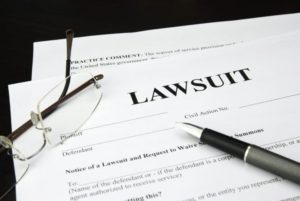Florida law allows the spouse of an injured party to sue the defendant for “loss of consortium.”
Table of Contents
What is Loss of Consortium?
Under Florida law, this is defined as the loss of:

“companionship and fellowship of husband and wife and the right of each to the company, cooperation and aid of the other in every conjugal relation. Consortium means much more than mere sexual relation and consists, also, of that affection, solace, comfort, companionship, conjugal life, fellowship, society and assistance so necessary to a successful marriage.”
For example, an example of loss of assistance is when the injured spouse can’t help with everyday tasks like cleaning the house, taking the children to football practice, or walking the dog.
Loss of companionship and society refers to the inability of the married couple to enjoy each other’s love and affection.
Damages associated with loss of consortium are non-economic damages like pain and suffering or emotional distress.
How Can I Claim Loss of Consortium in Florida?
The claim for loss of consortium is filed by the spouse of the injured party.
To seek damages for this loss, the plaintiff must prove:
- They were married when the injury occurred;
- The defendant negligently or intentionally caused injury to the plaintiff’s spouse;
- The defendant’s conduct resulted in foreseeable harm to others; and
- The plaintiff suffered loss of consortium.
The amount of damages is generally a question of fact for the jury. There “is no exact standard for fixing the compensation to be awarded. Any such award should be fair and just.”
In its determination of damages, the jury may consider several factors:
- Stability of the marriage
- Living arrangements of the couple
- Care and companionship shared between them
- Life expectancy of the spouses.
After considering these factors, the charge of the jury is to come up with a “fair and just” award.
Can Other Close Parties Besides a Spouse Sue for Loss of Consortium?

Unlike some states, a claim for loss of consortium in Florida isn’t reserved only for a spouse. It is also available for other close relationships. In this case, the loss is often referred to as loss of companionship.
For example, if a child is severely injured or dies in an accident, their parents may sue for loss of companionship due to the child’s injury. Similarly, a child may sue for loss of parental companionship, instruction, and guidance in case of a parent’s serious injury or death.
Caps on Liability for Loss of Consortium
Sometimes there are limitations, or caps, on the amount of damages that a jury can award for loss of consortium. For most personal injury claims, there is no cap on non-economic damages like loss of consortium. There is, however, a $500,000 cap in medical malpractice cases and a $200,000 limit in actions against state or local government.
Statute of Limitations for Loss of Consortium
Under Florida law, the statute of limitations for negligence claims is two years from the date of injury (as of March 24, 2023 — prior to that date, it was four years). For medical malpractice claims, it is two to four years, depending on the circumstances. A non-injured spouse or close party must generally file their loss of consortium/companionship claim within two to four years of their loved one’s injury, depending on the type of case.
If they do not file within the time limits, they lose their right to loss of consortium.
Case Studies
There is no guarantee that a claim for loss of consortium will result in a favorable jury award. Each claim is based on the facts, circumstances, and the jury’s evaluation.
Possibly a Successful Claim
Sally is driving her truck home from watching a college football game. Martin, who is driving under the influence of alcohol, carelessly rear-ends Sally. Due to the collision, Sally suffers severe back injuries and has to use a walker for the rest of her life. She can no longer have children.
Due to Martin’s negligence, Sally and her husband, Tom, can’t engage in sexual relations and aren’t able to have children. Sally is limited in how much she can contribute to household chores like making dinner or picking up some groceries. Tom can file a claim for loss of consortium and may prevail.
Likely an Unsuccessful Claim
While visiting Las Vegas, Bob and Theresa drank too much Tequila and got married on the spur of the moment. The next day, they woke up and realized it was all a big mistake. Bob went back to Alabama, and Theresa returned to Florida. They never visited each other and only occasionally had vague discussions about when and how to get a divorce.
Then Bob gets injured in a hunting accident. Theresa hears about it and files a claim for loss of consortium. This claim likely fails because Theresa really lost nothing as a result of Bob’s injuries.
Consult a Lawyer For Your Loss of Consortium Claim
Loss of consortium is an area of law strewn with pitfalls. There are statutes of limitations to comply with and caps on damages to be aware of. Furthermore, the rules for non-spouses (like parents or children) have strict requirements about when damages are available. If your spouse, child, or parent is injured in an accident, it is highly recommended that you get legal help from our personal injury attorneys with your potential claim.
